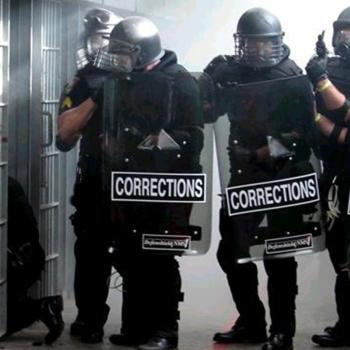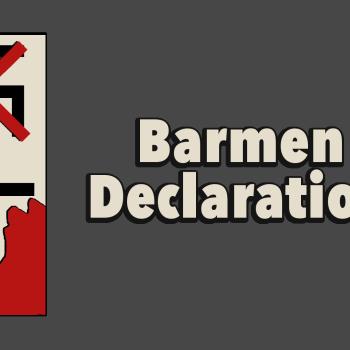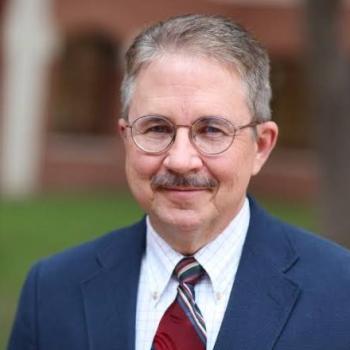 Nazi Cursing of, and by, Russia
Nazi Cursing of, and by, Russia
PT 3304
What is the relationship between cursing and war? Cursing the enemy precedes and accompanies aggression. Cursing justifies aggression. That is my observation. Cursing provides a litmus test to forecast that original sin is about to break into actual violence.
Perhaps the favorite of our curses over the last three-quarters of a century is to dub our victims “Hitler-like” or “Nazi-like.” Hitler’s Nazism is the most evil scourge we’ve experienced in recent history, and this scourge was cleaned up because of the military might of the Allies. When we dub our enemy “Hitler-like” or “Nazi-like,” are we asking for redemptive violence?
The myth of redemptive violence justifies one’s role in war. No matter how much violence we perpetrate, we want to feel justified. That’s the human condition. Does analysis of Nazi cursing shed any light on the current situation in eastern Europe?
This is an exercise in public theology. We’ll look at the war in Ukraine through the lenses of theological categories such as sin, self-justification, and scapegoating.
Cursing the enemy justifies aggression
Cursing consists of describing the enemy as evil. This justifies perpetrating violence against the evil enemy. Some call this, “demonizing the enemy.” After all, whenever you and I engage in violence we want to be justified. [Photo of injured woman by Al Jazeera]
 President Vladimir Putin curses Ukraine. This cursing justifies his invasion of that country. Putin’s curse designates the Ukrainian government as Nazi-like. In a televised speech on the eve of his invasion of February 23, 2022, President Putin announced a “special military operation” whose “goal is to protect people who have been abused by the genocide of the Kyiv regime for eight years.” Ultimately: “We will strive for the demilitarization and de-Nazification of Ukraine, as well as bringing to justice those who committed numerous bloody crimes against civilians.” Putin is a good person. He is justified in “bringing justice” through the “de-Nazification” of Ukraine.
President Vladimir Putin curses Ukraine. This cursing justifies his invasion of that country. Putin’s curse designates the Ukrainian government as Nazi-like. In a televised speech on the eve of his invasion of February 23, 2022, President Putin announced a “special military operation” whose “goal is to protect people who have been abused by the genocide of the Kyiv regime for eight years.” Ultimately: “We will strive for the demilitarization and de-Nazification of Ukraine, as well as bringing to justice those who committed numerous bloody crimes against civilians.” Putin is a good person. He is justified in “bringing justice” through the “de-Nazification” of Ukraine.
Is there any truth to Putin’s claims? No. Zach Beauchamp at Vox reports that there is no ongoing genocide in Ukraine. While there are government-aligned fascist militias in Ukraine, ones that have risen in influence since the pro-Western Euromaidan uprising in 2013, the Ukrainian government itself is not even close to a Nazi regime. The country’s president, Volodymyr Zelensky, is Jewish; he speaks proudly of how his Jewish grandfather fought against Hitler’s army.
As if playing volleyball cursing, Ukrainian president Volodymyr Zelensky spiked a “you Nazi” curse back at Putin.
Now, my sympathies are definitely with Zelensky and the wounded woman in the photo. He and his country are the victims. He and his country have justice on their side. But, justice can be a tricky thing, because both perpetrator and victim claim justice. So, we must press on with our analysis.
President Joe Biden refrained from cursing
In a previous Patheos blog post, “Are We Going to War with Russia?,” I contended that President Joe Biden was doing his best to avoid conflict. My evidence was the salient lack of cursing in his rhetoric. Here was my logic.
Proposition One. When an individual commits premeditated murder, the killer curses before killing.
Proposition Two. When a U.S. president plans to invade a foreign country, he (or she) curses the enemy in advance.
Proposition Three. To date, we have not heard President Biden curse President Putin.
Conclusion. Therefore, President Biden earnestly wants to avoid war with Russia.
The White House leadership sought through peaceful means to forestall war in Ukraine. The war has come despite this self-restraint.
Americans now cursing Russia
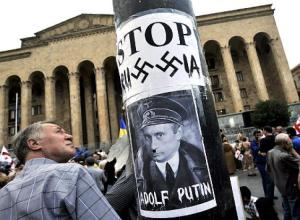 Even though President Biden could hold his tongue, other American leaders have let loose. “Assassinate” Putin, Senator Lindsey Graham of South Carolina has publicly advocated, citing the attempt to assassinate Hitler in 1944.
Even though President Biden could hold his tongue, other American leaders have let loose. “Assassinate” Putin, Senator Lindsey Graham of South Carolina has publicly advocated, citing the attempt to assassinate Hitler in 1944.
Nancy Pelosi, Speaker of the U.S. House of Representatives, joined the Nazi cursing volleyball game by describing President Putin as “a bad person who doing bad things.” And, yes, Putin is also Hitler-like.
Now, I resonate with what Speaker Pelosi has said. I want to curse Putin in the same way. But, my task here in this post is only to turn on the light, so to speak, to watch how sin operates on both sides of the firing line. This is one task of the public theologian. This means I have to hold my tongue. Yuck!
The Public Theologian on Sin and Hypocrisy
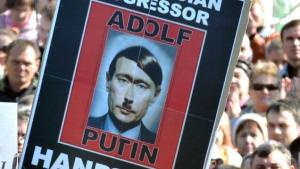 You and I do not ordinarily engage in sin in the name of what is evil. [1] Rather, we draw a line between good and evil and place ourselves on the good side. The victim of our aggression gets placed on the evil side. This makes us feel justified when we perpetrate violence. We perpetrate violence in order to eliminate evil from the world and to champion what is good. Yep! All wars are fought for peace. That’s the paradox of human sinning.
You and I do not ordinarily engage in sin in the name of what is evil. [1] Rather, we draw a line between good and evil and place ourselves on the good side. The victim of our aggression gets placed on the evil side. This makes us feel justified when we perpetrate violence. We perpetrate violence in order to eliminate evil from the world and to champion what is good. Yep! All wars are fought for peace. That’s the paradox of human sinning.
When the public theologian turns on the light, what is happening gets illuminated. Illumination does not prevent sinful aggression, to be sure. But it does permit us to see the hypocrisy.
It’s now time for just war theory.
▓
 Ted Peters is a Lutheran pastor and emeritus seminary professor. He is author of Short Prayers and The Cosmic Self. His one volume systematic theology is now in its 3rd edition, God—The World’s Future (Fortress 2015). He has undertaken a thorough examination of the sin-and-grace dialectic in two works, Sin: Radical Evil in Soul and Society (Eerdmans 1994) and Sin Boldly! (Fortress 2015). Watch for his forthcoming, The Voice of Public Christian Theology (ATF 2022). See his website: TedsTimelyTake.com.
Ted Peters is a Lutheran pastor and emeritus seminary professor. He is author of Short Prayers and The Cosmic Self. His one volume systematic theology is now in its 3rd edition, God—The World’s Future (Fortress 2015). He has undertaken a thorough examination of the sin-and-grace dialectic in two works, Sin: Radical Evil in Soul and Society (Eerdmans 1994) and Sin Boldly! (Fortress 2015). Watch for his forthcoming, The Voice of Public Christian Theology (ATF 2022). See his website: TedsTimelyTake.com.
▓
[1] Theologian Roger Olson wants to distribute the blame for aggression on America as well as Russia in his Patheos blog. That’s not my objective here. My objective as a public theologian is to shine the light of what we know about sin on the situation in order to illuminate the role of cursing in self-justification and scapegoating. This may have predictive value.






